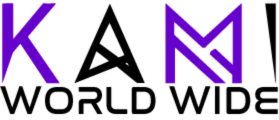In today’s global business landscape, international trade plays a vital role in the growth and success of companies worldwide. However, navigating the complexities of customs regulations, tariffs, and import/export laws can be overwhelming. To ensure seamless and efficient cross-border transactions, partnering with a reputable customs broker is essential. In this article, we will provide you with the top six tips to help you choose the right customs broker for your business needs, ensuring a competitive edge in international markets.
1. Understand Your Business Requirements
Before diving into the process of selecting a customs broker, it is crucial to have a thorough understanding of your business’s unique requirements. Consider the types of goods you import or export, the frequency of shipments, and the countries you deal with. Different industries may have specific compliance and documentation needs, so defining your objectives will enable you to find a customs broker that aligns perfectly with your business.
2. Research Reputable Customs Brokerages
Conduct extensive research to identify reputable customs brokerages that have a proven track record of excellence. Look for companies with substantial experience in handling similar types of shipments and a strong presence in the regions where you conduct business. Check online reviews, client testimonials, and industry certifications to gauge the broker’s reliability and credibility.
3. Verify Licensing and Certifications
To ensure that your customs broker operates within legal boundaries, verify their licensing and certifications. Reputable customs brokers should be licensed by the relevant authorities and be members of professional organizations such as the International Federation of Customs Brokers Associations (IFCBA). These affiliations demonstrate their commitment to high standards and adherence to regulations.
4. Evaluate Technology and Resources
Efficiency and accuracy are crucial when it comes to customs clearance. Inquire about the customs broker’s technological capabilities and resources. A modern, well-equipped broker will likely offer electronic customs filing, real-time shipment tracking, and automated compliance checks. Having access to such tools streamlines the customs process and minimizes the risk of delays or penalties.
5. Assess Communication and Customer Support
Clear communication channels and responsive customer support are essential for a successful partnership with a customs broker. During your evaluation process, assess how promptly they respond to your inquiries and how well they communicate complex information. A reliable customs broker should act as an extension of your team, keeping you informed throughout the customs clearance process.
6. Compare Pricing and Service Fees
While cost shouldn’t be the sole determining factor, it is essential to compare pricing and service fees among different customs brokers. Request detailed quotes and ensure that there are no hidden charges. Remember, the cheapest option may not always provide the level of service and expertise needed to protect your business interests effectively.
Customs brokers play a crucial role in international trade, assisting importers and exporters with the complex customs clearance process. There are primarily two types of customs brokers based on their authorization status and location:
Expertise and Knowledge:
Customs brokers are trained professionals who have an in-depth understanding of customs laws, regulations, and procedures in various countries. They stay up-to-date with changes in trade policies, tariff rates, and import/export requirements, ensuring smooth and compliant cross-border transactions.
Time and Cost Savings:
Importing and exporting goods can involve extensive paperwork and coordination with various government agencies. Customs brokers streamline the process, reducing administrative burdens on businesses and enabling them to focus on their core activities. They can also help identify cost-saving opportunities, such as duty exemptions or preferential trade agreements.
Compliance and Risk Mitigation:
Complying with customs regulations is essential to avoid delays, penalties, or even the seizure of goods. Customs brokers ensure that all necessary documentation is complete and accurate, reducing the risk of non-compliance issues.
Faster Customs Clearance:
Customs brokers have established relationships with customs officials and are familiar with the procedures at different ports of entry. They can facilitate faster customs clearance and help avoid unnecessary delays, which can be especially critical for time-sensitive shipments.
Access to Resources:
Customs brokers have access to various resources and tools that can aid in the smooth movement of goods. They often use electronic customs clearance systems and have access to databases and industry-specific knowledge.
Handling Complex Shipments:
Some shipments may involve specialized documentation, such as hazardous materials, perishable goods, or high-value items. Customs brokers have the expertise to handle these complex shipments efficiently and ensure they comply with specific regulations.
International Trade Consulting:
Beyond customs clearance, customs brokers can offer valuable advice on international trade practices, trade agreements, and market entry strategies, assisting businesses in expanding their global reach.
Confidentiality and Security:
Customs brokers handle sensitive information related to trade transactions. Reputable customs brokers adhere to strict confidentiality and security protocols to protect their clients’ data.
Customs Broker types
Licensed Customs Broker:
This type of customs broker is authorized and licensed by the customs authorities of a specific country. To obtain a license, individuals or companies must meet certain qualifications, which may include passing an examination and demonstrating knowledge of customs regulations and procedures. Licensed customs brokers have the authority to conduct customs business on behalf of their clients and ensure compliance with all relevant laws and regulations.
Non-Licensed Customs Broker (Unlicensed Broker):
In some countries, there may be individuals or companies that assist with certain customs-related tasks but do not hold an official customs broker license. They may not have the same level of authority as licensed brokers and are often limited in the scope of services they can provide. In some cases, they may work under the guidance of a licensed customs broker.
In conclusion, choosing the correct customs broker can have a big impact on your company’s foreign operations. By understanding your unique requirements, researching reputable brokerages, verifying licensing and certifications, evaluating technology and resources, assessing communication and customer support, and comparing pricing and fees, you can make a well-informed decision that will benefit your company in the long run.

